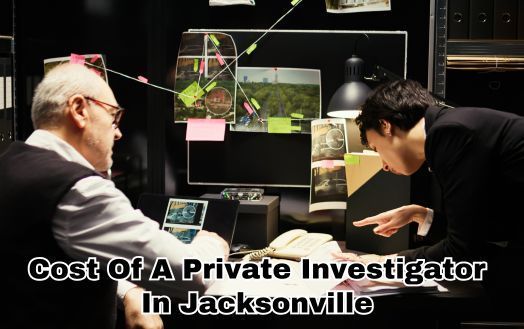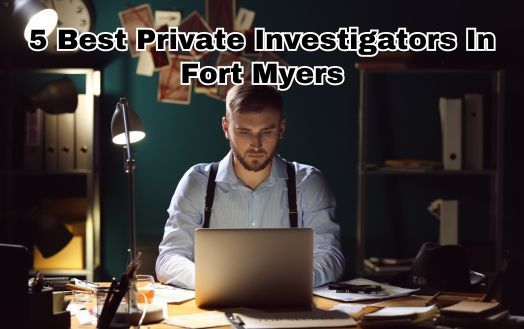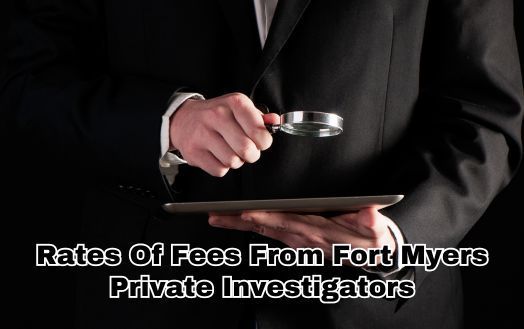What Do Private Investigators Do

As a private investigator, my job is never boring. Every day presents new challenges and opportunities to uncover the truth and provide answers for clients who need them.
You may have seen portrayals of private investigators in movies or TV shows, but what do we really do in real life?
Private investigators are hired by individuals, businesses, and organizations to conduct investigations on a wide range of issues. Our goal is to gather information and evidence that can help our clients make informed decisions or take action based on facts rather than speculation. From conducting surveillance to digging up dirt online, there are many tools and techniques we use to get the job done.
In this article, I'll provide an overview of what do private investigators do on a daily basis and the skills required to be successful in this exciting field.
Private Investigator Overview
So, you're wondering what a private investigator does? Well, let me give you an overview of the profession.
Private investigators (PI) are professionals who are conducting thorough investigations to gather information and uncover facts on behalf of individuals, businesses, and organizations. Their work involves gathering evidence for court cases, tracing missing persons, conducting background checks, and uncovering fraudulent activities.
Private investigators use various techniques to obtain the necessary information they need for their clients. They conduct surveillance operations using specialized equipment such as cameras and audio recording devices. They also interview witnesses and gather data from public records such as court documents and police reports. They are professionals who are good at finding information and evidence. Additionally, private investigators often work closely with law enforcement agencies to solve complex cases. These are all part of their investigative job.
Overall, private investigators play a crucial role in providing valuable information that can assist their clients in making informed decisions.
In the subsequent section about types of private investigation, we'll delve deeper into specific areas where private investigators specialize in providing their services.
Types Of Private Investigation

There are various types of investigations that private investigators specialize in, each requiring a unique set of skills and techniques. One common type is conducting thorough background checks on individuals or companies. This may involve searching through public records, interviewing references, and verifying employment history to gather information for clients.
Another popular area of
expertise for private investigators is surveillance. This involves discreetly observing an individual's daily activities to gather evidence for legal or personal purposes. PI's use a variety of surveillance techniques such as GPS tracking devices and hidden cameras to monitor their target's movements without being detected.
Infidelity cases also fall under the umbrella of private investigation services. When someone suspects their partner is cheating,
they may hire a PI to conduct an investigation and provide evidence of the affair. This often involves monitoring the suspected cheater's activity both physically and online to gather proof.
Moving on from types of private investigation, let's take a closer look at some common surveillance techniques used by private investigators today...
Surveillance Techniques
Get ready to learn about some of the cool surveillance techniques that private investigators use! As private detectives, conducting thorough investigations is crucial to ensuring that my clients' needs are met.
Surveillance is one of the most effective ways to gather evidence and obtain information. Here are some of the most commonly used surveillance techniques:
- Stakeouts: This involves monitoring a location for an extended period of time, usually from a vehicle or hidden position. It requires patience and attention to detail, but can yield valuable information.
- Covert cameras: These are small cameras that can be hidden in everyday objects like pens, clocks, or even eyeglasses. They allow us to capture footage without drawing attention to ourselves.
- GPS tracking: This technique involves placing a device on a vehicle or person's belongings to track their movements. It's particularly useful when trying to monitor someone's whereabouts over an extended period.
As you can see, private investigators have access to many advanced tools and techniques for conducting thorough investigations. By using these methods, we're able to gather valuable evidence that our clients can use in legal proceedings or personal matters.
Now that you know about some of the cool surveillance techniques we use as private investigators and what do private investigators do, let's move on to gathering evidence. This step is just as important as surveillance because it allows us to analyze the data we've collected and draw conclusions about what it all means.
Gathering Evidence From People And Documents
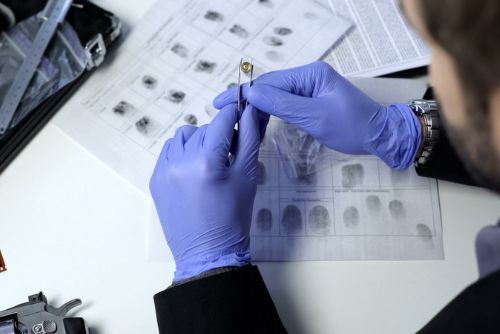
Now that we've covered surveillance techniques, it's time to dive into the crucial step of gathering evidence. Private investigators play a significant role in conducting thorough investigations and finding valuable information.
Gathering evidence is an essential task for private investigators as it helps them build a strong case. Private investigators use various methods to gather evidence, including interviews, background checks, and document searches.
Interviews involve speaking with witnesses or subjects directly related to the investigation. Background checks help to verify information provided by potential witnesses or suspects. Document searches involve reviewing public records or documents related to the investigation.
When gathering evidence, private investigators must ensure that they obtain information legally and ethically. They can't break any laws while investigating or gather evidence through illegal means such as hacking into someone's email account. Ethical considerations are also important when working on sensitive cases such as cheating spouses or child custody battles.
Moving forward, legal considerations are vital when gathering evidence as they impact how the collected information can be used in court proceedings. Private investigators must adhere to strict guidelines when collecting and presenting evidence in court hearings. Failure to do so may result in the exclusion of critical pieces of information from trial proceedings, which could negatively affect their client's case outcome.
Legal Considerations
You need to understand the importance of following legal guidelines when gathering evidence as a private investigator. The law sets out strict rules and procedures that must be followed, or else the evidence may be deemed inadmissible in court. This is why it's crucial to hire a skilled detective who not only understands how to gather information, but also knows how to do so legally.
In my experience with investigations, I've learned that legal considerations are paramount. It's easy for emotions and instincts to take over during an investigation, but ultimately, all actions taken must adhere to the law. For example, obtaining information through illegal means such as hacking into someone's computer or phone can lead to severe consequences for both the client and me as the investigator.
As a professional private investigator, I always strive to uphold ethical standards while conducting investigations within legal boundaries. By doing so, I'm able to ensure that any evidence gathered is admissible in court and protect innocent individuals from being wrongly accused or harmed by unethical practices.
With these principles in mind, let's move on to explore another important aspect of investigations: background checks.
Background Checks

Background checks are an essential part of any investigation conducted by private investigators. These checks provide valuable information about a person's past and present, including criminal records, employment history, financial standing, and other personal details. This information is crucial for private investigators to gather when they need to make informed decisions or take necessary action.
Private investigators use various methods for information gathering during background checks. They may conduct interviews with family members, friends, coworkers, or neighbors of the subject in question. Investigators may also scour public records such as court documents and property records to obtain relevant information. Additionally, private investigators may use advanced technology tools to access databases that contain sensitive data to gain more insight into the subject's background.
The accuracy of the information gathered during a background check can help private investigators make better-informed decisions regarding their investigations. Misinformation or false leads can lead them down the wrong path and waste valuable resources. By conducting thorough background checks on subjects before starting an investigation, private investigators can ensure that they have all the necessary facts needed for locating people or uncovering crucial evidence without wasting time on irrelevant leads.
Locating Someone Or Persons Of Interest
When searching for someone, it can feel like trying to find a needle in a haystack. However, private investigators are experts at locating missing persons and conducting thorough investigations to provide their clients with the answers they need.
Whether you're looking for a long-lost family member or trying to track down an individual who owes you money, private investigators have the skills and resources necessary to get the job done.
One of the primary tools that private investigators use when locating people is surveillance. This involves observing the subject's behavior and movements over an extended period of time in order to gather information about their location and habits. Investigators may also use online databases, public records, and other resources to uncover clues about a person's whereabouts.
In some cases, locating a missing person requires more than just investigative skills - it also requires compassion and empathy. Private investigators understand that families who are searching for loved ones are often going through difficult times emotionally, which is why they approach each case with sensitivity and care. By combining their investigative expertise with compassion for their clients' situations, private investigators are able to help bring closure and peace of mind to those who are searching for missing loved ones.
As we move on to discussing domestic cases, it's important to note that many of these situations involve locating individuals as well. Whether it's tracking down a cheating spouse or finding evidence of child custody violations, private investigators play an essential role in helping people navigate complex domestic issues.
Domestic Cases

If you're dealing with a difficult domestic situation, from infidelity to custody battles, it can be overwhelming and emotionally draining. That's where private investigators come in. They're trained professionals who specialize in gathering information for domestic cases.
Here are some ways they can help:
- Background checks: Private investigators can conduct thorough background checks on individuals involved in your case, including potential partners or spouses, ex-spouses, and even witnesses.
- Surveillance: PIs use various methods of surveillance to gather evidence, such as video recording or tracking devices.
- Child custody investigations: If you're going through a custody battle, PIs can help gather evidence that may support your case. This may include documenting the other parent's behavior or living arrangements.
Dealing with domestic issues is never easy, but having a private investigator on your side can give you peace of mind knowing that someone is working to uncover the truth. These professionals are experienced at gathering information discreetly and efficiently so that you have the evidence you need to make informed decisions about your situation.
As we move into discussing corporate cases, it's important to note that private investigators often handle both types of cases. While domestic cases may involve more emotional turmoil, corporate cases often involve high stakes and complex legal issues. Nonetheless, private investigators use their skills and experience to provide valuable insight into these matters as well.
Corporate Cases
Private investigators are highly skilled professionals who can provide valuable insight into complex legal issues in corporate cases. These cases often require the gathering of information that isn't readily available to the public or easily accessible through traditional channels.
Private investigators have access to a variety of resources and techniques that allow them to gather the necessary information and provide their clients with a comprehensive understanding of their case. Corporate cases can involve a wide range of issues, including fraud, embezzlement, intellectual property theft, and employee misconduct.
Private investigators can assist in these cases by conducting thorough background checks on employees or potential business partners, monitoring electronic communications for evidence of wrongdoing, and conducting surveillance to gather evidence of illegal activity. In addition to gathering information, private investigators can also provide expert testimony in court proceedings.
They can help attorneys build a strong case by presenting evidence that may be difficult for others to obtain or interpret. Overall, private investigators play an important role in corporate cases by providing valuable insights and helping businesses protect themselves against potential legal threats.
As we transition into the next section about insurance investigations, it's important to note that private investigators also play a crucial role in this field as well.
Insurance Investigations
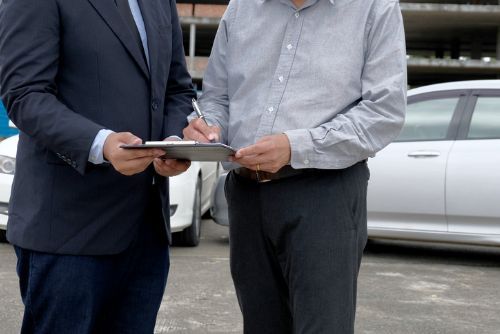
You'll find insurance investigations to be a fascinating area of work, where as an investigator or private detective, you get to use your skills and knowledge to uncover fraudulent claims and protect insurance companies from financial loss. Insurance fraud is a serious issue that can cost companies millions of dollars each year, so it's vital to have experts on hand who know how to detect it.
To investigate insurance fraud cases effectively, an investigator must first gather all relevant information about the claim in question. This includes interviewing witnesses, reviewing medical records and police reports, and examining any physical evidence that might exist. Once this information has been collected, the investigator will then analyze it carefully to determine whether there are any inconsistencies or discrepancies that suggest fraud.
If fraud is suspected, the investigator will continue their investigation by conducting surveillance on the claimant to gather additional evidence. They may also work with law enforcement agencies and other professionals such as forensic accountants or computer specialists to help build a case against those responsible for committing the fraud.
Overall, working in insurance investigations provides an exciting opportunity for investigators who want to use their skills and expertise in a unique way while helping protect businesses from significant financial losses.
As we move into our next topic about financial investigations, it's important to note that many private investigators specialize in both areas of work. Just like with insurance investigations, financial investigations require attention to detail and a keen eye for detecting fraudulent activity.
Stay tuned for more insights into this exciting field of investigative work!
Financial Investigations
Financial investigations require a thorough understanding of financial records and transactions, as well as the ability to identify patterns and anomalies that may indicate fraudulent activity. Private investigators who specialize in this area are equipped with the necessary skills to uncover hidden financial information that may be crucial in determining the truth behind a case.
In conducting financial investigations, private investigators often work closely with accountants and other financial experts to analyze complex financial data. Through careful examination of bank statements, tax returns, and other financial documents, they can identify unusual patterns or discrepancies that may point towards illegal activity such as embezzlement or money laundering.
Despite the complexity of these types of investigations, private investigators are able to navigate through vast amounts of financial information using specialized software and techniques. Their expertise in uncovering fraudulent activities provides valuable support for clients seeking justice and resolution through legal means.
As we move into an increasingly digital age, cyber investigations have become more prevalent. These types of investigations involve examining electronic devices such as computers or smartphones for evidence related to a case.
Cyber Investigations
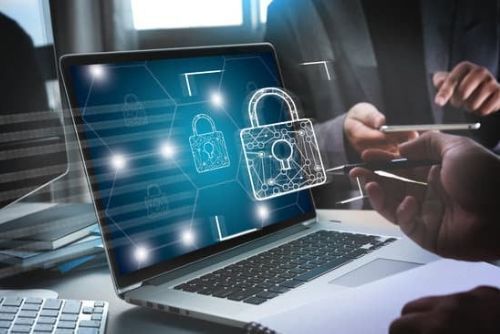
If you're looking to uncover digital evidence for a case, cyber investigations are the way to go. Private investigators like myself specialize in gathering information from online sources that can help solve cases. Here are 4 key things you should know about cyber investigations:
- We use specialized software and techniques to track down digital footprints left by individuals on the internet.
- Our work includes searching social media accounts, analyzing email communications, and monitoring online activity of suspects.
- We also have expertise in identifying and tracking down anonymous users who may be involved in cybercrime.
- Cyber investigations require extensive knowledge of computer systems and networking, as well as legal regulations surrounding electronic evidence.
As a private investigator with experience in cyber investigations, I've seen firsthand how this area of investigation has become increasingly important in today's world. With so much communication happening online, it's crucial to have professionals who can gather and analyze digital evidence for legal purposes.
Moving forward into the next section about international investigations, it's important to note that many times these cases involve cross-border cyber crimes. As technology continues to advance at an incredible pace, it's essential for private investigators to stay up-to-date on the latest techniques for gathering digital evidence across multiple jurisdictions.
International Investigations
As we delve into international investigations, it's crucial to understand the complexities that arise when dealing with cross-border crimes. Private investigators play a crucial role in gathering information for these types of cases. However, conducting investigations in foreign countries can be extremely challenging due to differences in laws and regulations.
Private investigators must navigate through language barriers, cultural differences, and unfamiliar legal systems when conducting international investigations. Additionally, they need to comply with local laws and ethical standards while gathering evidence. This requires extensive research and preparation before even beginning an investigation.
Despite the challenges, private investigators continue to seek out new methods for conducting efficient and effective international investigations. With advancements in technology and communication, they're able to overcome many of these obstacles. As the world becomes more interconnected, it's essential for private investigators to stay up-to-date on global trends and developments in order to provide top-notch services for their clients.
When it comes to ethical standards in the field of private investigation, there are strict guidelines that must be followed.
Ethical Standards And Laws
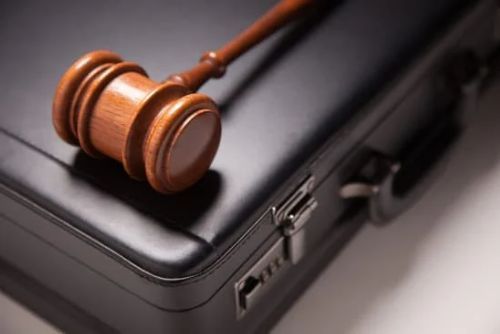
You should always adhere to ethical standards and laws when conducting investigations, as it's crucial for maintaining the integrity and credibility of the private investigation profession.
Private investigators are hired by clients to uncover information that may not be easily accessible through public records or other means. As such, they hold a great deal of responsibility in ensuring that their methods are legal, truthful, and respectful.
Ethical standards require private investigators to conduct thorough investigations while staying within the bounds of the law. This means seeking out information through lawful means and avoiding any tactics that may be deemed unethical or illegal. Additionally, private investigators must maintain confidentiality with their clients' information and ensure that any findings are reported truthfully and accurately.
Following ethical standards and laws not only ensures that private investigators remain credible and respected within their field but also protects clients from potential legal repercussions. By conducting thorough investigations with integrity, private investigators can provide valuable information to their clients without compromising anyone's safety or privacy.
Training and education play a crucial role in instilling these ethical principles in aspiring private investigators so they can uphold these values throughout their careers.
Training And Education
As I've mentioned earlier, ethical standards are crucial for private investigators to uphold. However, it's not just about following a set of rules and regulations.
To become a successful private investigator, you need extensive training and education. Here are some important things to know about the training and education required for private investigators:
- State requirements: Different states have different requirements for becoming a private investigator. Some require specific education or experience, while others only require state licensing.
- Specialized training: Many private investigators specialize in areas such as fraud investigation or computer forensics. This requires additional training beyond the basic requirements.
- Continuing education: Private investigators must stay up-to-date with the latest technology and techniques in their field. Continuing education is essential to maintaining their skills and knowledge.
In summary, becoming a private investigator requires more than just an interest in solving mysteries. It takes dedication to continuing education, state licensure and specialized training to be successful in this field. As technology continues to evolve, it's important for private investigators to stay current with new tools and techniques that can help them solve even the most complex cases.
Final Thoughts
So, now you know what do private investigators do. As someone who's been in this field for a while, I can tell you that there's no one-size-fits-all approach to investigations.
The work of a private investigator can vary significantly depending on the case and the client's needs. From conducting surveillance and gathering evidence to performing cyber investigations and international cases, private investigators play an essential role in uncovering information and helping clients achieve their goals.
However, it's important to remember that all investigations must adhere to legal considerations and ethical standards. If you're interested in pursuing a career as a private investigator, make sure you receive proper training and education before jumping into the field.
Frequently Asked Questions
What Is The Typical Cost For Hiring A Private Investigator?
I've done some research on the typical cost for hiring a private investigator, and it varies depending on the complexity of the case and the experience of the investigator.
On average, you can expect to pay anywhere from $40 to $200 per hour for their services. However, some cases may require additional expenses such as travel fees or equipment costs.
It's important to keep in mind that hiring a private investigator is an investment in obtaining valuable information and peace of mind. The cost may seem high, but it's often worth it in the end.
Can Private Investigators Make Arrests?
Yes, private investigators can make arrests in certain situations. However, they don't have the same authority as law enforcement officers.
Private investigators can only make a citizen's arrest if they witness a crime being committed or have probable cause to believe that someone has committed a crime. Additionally, some states require private investigators to be licensed before they can legally make an arrest.
As a private investigator myself, I always prioritize safety and follow all legal protocols when making an arrest. It may not be something we do every day, but having the ability to make an arrest when necessary is just one of the many tools we use to gather evidence and protect our clients' interests.
How Do Private Investigators Protect Themselves During Dangerous Situations?
When it comes to protecting myself during dangerous situations as a private investigator, I always make sure to stay alert and aware of my surroundings. This means constantly assessing any potential threats or risks and being prepared to take action if necessary.
I also invest in top-quality gear such as bulletproof vests, pepper spray, and surveillance equipment to help me gather information safely. Additionally, I maintain strong relationships with law enforcement agencies who can provide backup if needed.
Finally, I never underestimate the power of communication - by building trust with clients and staying transparent about my methods, I'm able to minimize misunderstandings and prevent potentially dangerous situations from escalating.
What Percentage Of Private Investigation Cases End In A Successful Resolution?
As a private investigator myself, I know that the success rate of cases can vary greatly depending on the nature of the investigation and the resources available.
While it's difficult to give an exact percentage, I would estimate that most cases are resolved successfully. However, there are also cases where we may not be able to gather enough evidence or come to a conclusive resolution.
That being said, as private investigators we always strive for success and utilize innovative techniques and technology to ensure that we have the best chance at finding the information needed to solve our clients' cases, so
hire a PI that will be the best fit and is near you.
It's a challenging profession but one that is incredibly rewarding when we're able to provide
closure for our clients.
What Kind Of Technology And Equipment Do Private Investigators Use?
As a private investigator, I rely heavily on technology and equipment to gather information and solve cases. One of the most important tools in my arsenal is surveillance equipment, including cameras and listening devices. These high-tech gadgets allow me to discreetly monitor suspects' activities and conversations without arousing suspicion.
I also use GPS tracking devices to keep tabs on vehicles or other assets that may be relevant to a case. Another key piece of technology is computer software for analyzing data and conducting background checks on individuals involved in the investigation.
Whether it's using drones for aerial surveillance or forensic analysis tools to examine digital evidence, staying up-to-date with the latest tech advances is crucial for success in this field.








